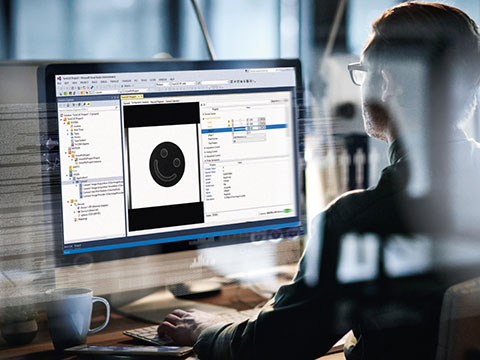
Posted to News on 4th Mar 2025, 14:00
The importance of software in driving autonomous manufacturing
Building on Industry 4.0, the new Industry 5.0 phase encourages deeper human-machine collaboration and promises to improve responsiveness and sustainability. A key milestone will be fully autonomous production - or lights-out manufacturing - explains Beth Ragdale, product manager at Beckhoff Automation UK.

(See Beckhoff at Machine Building North, 10 April 2025, on stand 71)
Lights-out manufacturing enables fully automated production, where machines handle everything from assembly to quality control without human oversight. The benefits include continuous 24/7 operation, reduced labour costs and production efficiency. This approach is particularly valuable in high-precision sectors, like pharmaceuticals and automotive, where the slightest error can cost manufacturers dearly.
Implementing true lights-out production requires more than advanced machinery - it relies on software that can enable intelligent decision-making and smooth system integration.
While robots and automated machinery like grippers can handle physical tasks, intelligent software is needed to coordinate processes and respond to changing conditions. For example, modern manufacturing facilities rely on AI-driven control systems that continuously analyse vast amounts of data, helping identify patterns and optimise workflows. These software solutions also enable adaptive manufacturing, helping production lines self-adjust based on demand fluctuations and material availability.
The benefit of software-powered automation comes in the form of predictive analytics. This capability allows manufacturers to anticipate potential failures early, saving time and costs. Digital twins are a great example. These virtual models of physical assets enable real-time monitoring and scenario testing and allow for proactive decision-making. This simulation of different operating conditions can benefit manufacturers in many ways, from optimising performance to extending equipment lifespans.
Empowering autonomous manufacturing
Lights-out manufacturing is fast moving from idea to reality. Meanwhile, software is evolving to ensure flexibility, efficiency and predictive intelligence - all central to Industry 5.0. Modern industrial software must do more than simple automation, it must adapt to unforeseen challenges and integrate across connected systems. Furthermore, it should enable real-time decision-making and minimise reliance on human input.
One of the main hurdles in achieving true lights-out manufacturing is maintaining system-wide synchronisation and adaptability. Platforms like Beckhoff's TwinCAT, alongside other industrial automation solutions, address this by combining real-time control with machine learning and connectivity.
For example, TwinCAT can help transform PC-based systems into real-time controllers, complete with a range of protocols such as OPC-UA, MQTT, TCP/IP and Modbus to connect to devices across the factory floor. It also supports modular extensions and third-party components, ensuring flexibility.
The human role
Despite the automation push, Industry 5.0 isn't about eliminating human workers - far from it. It's about redefining their roles in manufacturing, moving them away from repetitive manual tasks and towards roles that require critical thinking, oversight and strategy.
Skilled engineers and technicians will remain essential in optimising production, refining automated processes and troubleshooting complex system issues that machines can't resolve alone. Meanwhile, human expertise is still needed in areas like system design, data analysis and continuous process improvement.
Increasingly, manufacturers are using a hybrid approach, integrating lights-out manufacturing where feasible and keeping human oversight for high-value interventions. Fully autonomous may be the ideal, but industries requiring flexibility - such as pharmaceutical production and food processing - will still rely on human judgement. It's engineers and operators who can help interpret machine-generated data, adjust automation parameters and respond to unforeseen challenges.
As manufacturers march closer to Industry 5.0, software will play a key role in helping them automate production. Human staff will remain crucial and will benefit from smart solutions that can help them improve flexibility, efficiency and predictive intelligence on the factory floor. The key is working with an experienced automation specialist who can guide them through this latest stage in their evolution.
Want the latest machine building news straight to your inbox? Become a MachineBuilding member for free today >>















